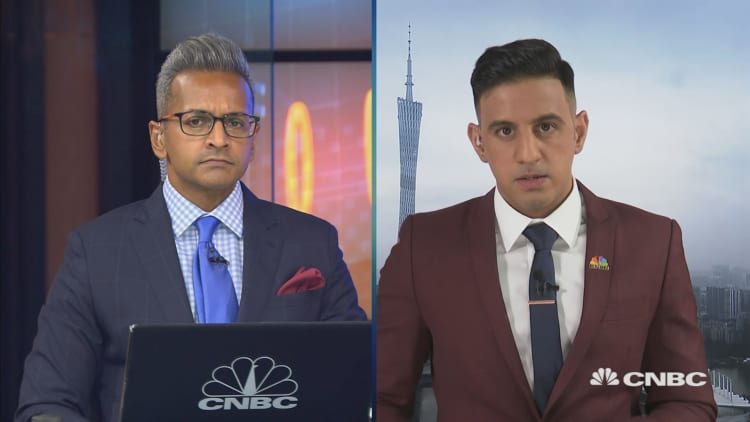While Hong Kong's trade with the U.S. would be immediately affected once Washington revokes the Chinese city's special status, tariffs won't be the most pressing concern, former top White House trade negotiator Clete Willems told CNBC on Monday.
Last Friday, President Donald Trump said he would begin to revoke Hong Kong's favored trade status with the United States. That came after China approved a proposal for a controversial new security law that would effectively bar political protest, and override the legislature in the special administrative region.
China's proposal has prompted concerns over Hong Kong's status as a top financial hub in Asia. If its special trade status with the U.S. is revoked, that would affect the trade between the two, as well as impact the more than 1,300 American companies operating in the city.
Due to its special status, Hong Kong has so far been exempted from tariffs that the U.S. has imposed on China as part of the trade war between the two countries.
"If you only look at tariffs ... Hong Kong isn't a huge manufacturing sector in its own right," Willems told CNBC.
U.S. goods and services trade with Hong Kong totaled more than $66 billion in 2018, according to the Office of the U.S. Trade Representative (USTR). U.S. exports to Hong Kong were $50.1 billion, while imports were $16.8 billion, according to the data.
"What's really significant is going to be export controls — do we stop U.S. technology from going to Hong Kong without a license? Do we have different tech treaties, aviation treaties with Hong Kong?" Willems continued, adding that there's also concern whether Hong Kong's role as a financial hub for China and the rest of the region would be jeopardized.
"Those things to me are much more significant than the tariffs," he concluded.
Willems used to serve as the lead trade negotiator for the U.S. at summits like the G-7 and G-20, and also participated in trade talks in Washington and Beijing. He was a right-hand man to NEC Director Larry Kudlow on trade with China.
That same concern on the sale of U.S. technology to Hong Kong was flagged by research firm Capital Economics last week. It said that the greater risk was the U.S. could restrict sales of "sensitive technologies" to Hong Kong firms.
Restricting that ability of Hong Kong-based firms to source "sensitive products" would take away Hong Kong's advantage as a business location versus mainland China, Capital Economics said.

The trade war between the U.S. and China had evolved into a battle over technology — a big sticking point has been what Washington saw as China's theft of American intellectual property.
In the latest move, Washington now requires foreign manufacturers using U.S. chipmaking equipment to get a license before being able to sell semiconductors to Chinese tech giant Huawei.


